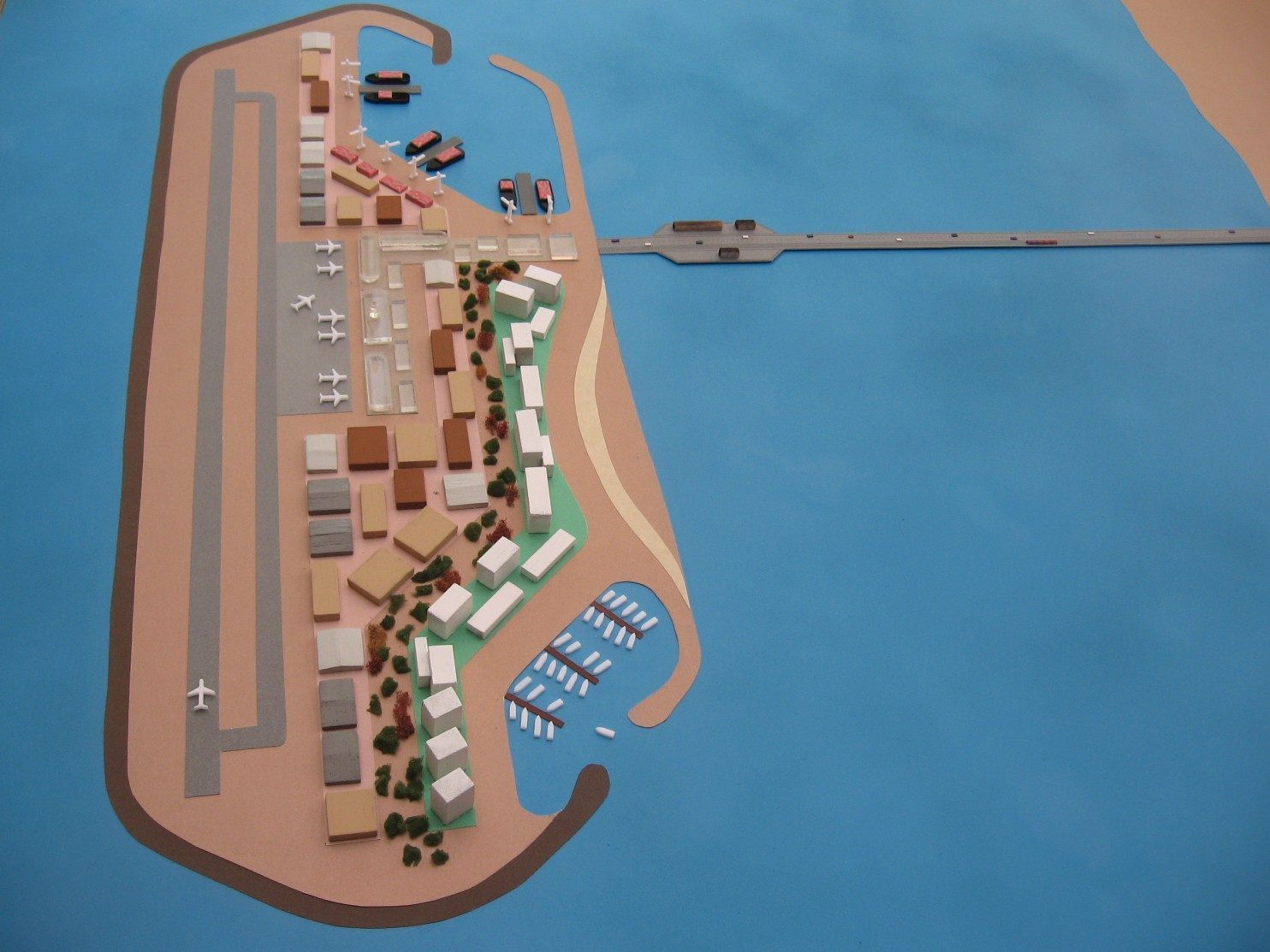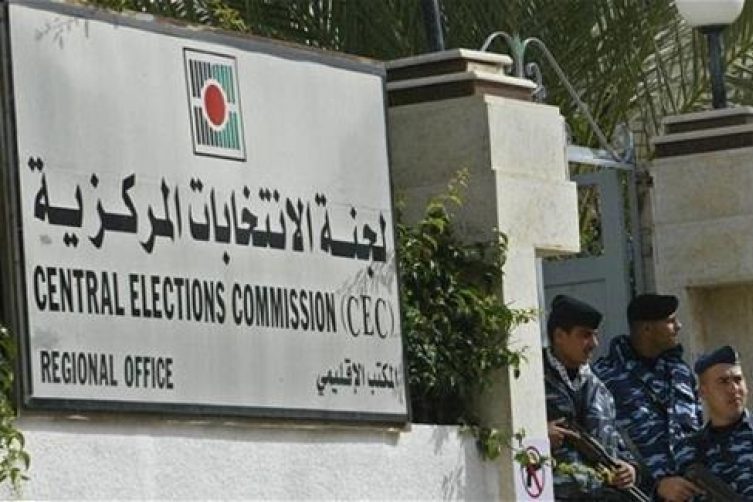
The Israeli government is considering a proposal to build an artificial island off the Gaza Strip that a top official says would give Palestinians living in the besieged enclave their one and only seaport — and maybe a hotel and an international airport, too, according to Reuters.
According to reports released this week, the almost 8 km square island – about a fifth of the area of Gaza city – would host a seaport and could eventually include an airport. It would also house hotels and a smaller port for yachts.
The Israeli minister of intelligence who is promoting the plan, Israel Katz, said the Jewish state is actively seeking financial partners for the $5 billion project.
A senior Israeli backing for an ambitious $5bn (£3.4bn) plan to ease the economic blockade of Gaza with an artificial island linked to the territory by a secure three-mile bridge.
Transport and intelligence minister Yisrael Katz’s argument for the island, which would include a seaport and possibly even an airport, is that it would restore Gaza’s links with the outside world without jeopardising Israeli security.
Access via the bridge could be tightly controlled by Israel or an Israel-approved international force.
Katz, whose department this week released an image of the putative 8 sq km (3 sq mile) island, said: “I do not think it is right to lock up 2 million people without any connection to the world. Israel has no interest to make life harder for the population there. But because of security concerns we can’t build an airport or seaport in Gaza.”
Though Katz is a prominent minister in the Likud party of prime minister Binyamin Netanyahu, the proposal has yet to win formal backing from Israel’s security cabinet.
Netanyahu’s office declined further comment on Wednesday. Nor is it clear how willing international donors, who by the end of March had disbursed only 40% of the $3.5bn pledged to Gaza after the 2014 war, would be to help with funding.
The Israelis envision the port complex to be constructed atop a man-made island — dredged with sand from the sea bottom, measuring four square miles — that would be located three miles offshore and connected to the mainland by a two-lane bridge.
In Israel’s planning, the bridge is the crucial component in the scheme, allowing access to the port to be tightly controlled.
A bridge could be closed during hostilities — and though the Israelis don’t say this, a section could be blown up in an Israeli airstrike during a war, cutting off the harbor.
Skeptics call the Gaza island proposal farfetched. Critics describe it as another attempt by Israel to blunt criticism over the moribund peace process with the Palestinians and the decade-long trade and travel restrictions that Israel has imposed on Gaza since the Islamic resistance movement (Hamas) took the enclave in 2007.
There is some scepticism elsewhere in government over whether the project’s security could be guaranteed while Hamas controls Gaza. Other critics argue that it would be cheaper to allow greatly increased exports to Gaza’s traditional markets in Israel and the West Bank.
No details about where the money would come from or who would help to build the island were released, but Katz suggested that Chinese or possibly Saudi Arabian firms would head up construction.
Katz added that the scheme has widespread support among the Israeli security establishment but admitted that neither Hamas nor Fatah – the two main Palestinian political groups – had been consulted.
Katz conceded that so far all that exists is a paper study and some drawings. Yet he talked about the project in grand terms, describing it as a way to both guarantee Israel’s security and award Gaza a portal to the world.
The Israelis have not spoken about the project with Hamas or the Palestinian Authority, which has nominal control of the strip.
Katz said the idea was to build an island connected by a bridge “like we saw in New York over the Hudson River” — an apparent referral to the George Washington Bridge, which is three-quarters of a mile long and not built across disputed territory fronted by a terrorist group.
The intelligence minister said there would be a checkpoint in the middle of the bridge staffed by international authorities. The island itself would belong to no single country but would have an international legal status and international security forces, he said.
Katz did not know which international authorities would agree to such duty. He suggested NATO.
Israel considers the United Nations a hostile forum, though there are international troops along the Lebanese, Syrian and Egyptian borders.
Israel would be responsible for security in the waters surrounding the island, Katz said.
Katz envisions a commercial port on the island that could handle goods coming into and out of Gaza. Currently, goods and people arrive via a crossing with Egypt, which has been closed for most of the last two years, and two others with Israel.
Israel restricts exits — people younger than 50 cannot generally get travel permits unless they need to be hospitalized. The state closely watches what materials move into Gaza, fearful the supplies will be used to make rockets or tunnels.
Palestinians could travel to the island and use the port — through a checkpoint. That’s the idea.
“And this would be just the beginning,’’ Katz said. “We would create electricity, desalination plants. This island will be an island of initiatives of all kinds.”
None of which the Israeli government plans to pay for.
“It can be done,” said Itamar Yaar, a former deputy head of Israel’s National Security Council. “It is not a fantasy.”
But Yaar said other, far less expensive options are available.
Floating islands for example. Or a direct shipping line from Cyprus, secured by Israel. Or more land crossings.
“The Palestinians rejected all the plans at the time — they said it is all or nothing,” Yaar said. “Only way they would agree to any kind of shipment into Gaza would be directly into a Gaza port without security checks.”
Palestinians have begged for just a small, ordinary port built on the shoreline, the kind that exists on dozens of little Greek islands — enough to handle a ferry or two and a couple of small freighters. There are about 1.8 million people in Gaza; most depend on food support from the United Nations.
Such an unsecured port would quickly become a duty-free transit zone for weapons and terrorists, Katz said.
Tania Hary, executive director of Gisha, an Israeli human rights group focused on Gaza, said that if the Netanyahu government really wanted to help Gaza there were many more immediate, less-expensive ways to buttress the economy and provide relief.
She said markets already exist for Gaza’s products in Israel and the occupied West Bank — but Israel denies permits to move the products. “What is the real motivation behind this proposal?” Hary asked.
Katz said the Israeli military has supported the idea.
“What’s special about this is that from both right, left and center, you can find supporters for this,” Katz said.
Hamas has long demanded a Gaza seaport in return for a long-term truce, but ministers say this could be used to import weapons.
Predictably, the Palestinians themselves protested the plan, insisting it was an Israeli scheme to drive a further wedge between Gaza and the so-called “West Bank.”
If implemented, the plan would see the construction of an artificial island eight square kilometers (three square miles) in size and connected to the nearby Gaza shore by a four-mile bridge.



